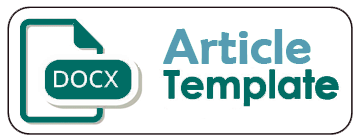Development of Guidelines for Writing Scientific Publication Articles for Undergraduate Students in The Department of Civil Engineering
DOI:
https://doi.org/10.32497/jolali.v1i1.4465Keywords:
R & D, Writting, Scientific publication, Department of Civil Engineering.Abstract
The Students of the Applied Bachelor of Civil Engineering Department in Polines were
declared to have passed perfectly after publishing scientific articles in journals. It must be
realized by students that the role of scientific publications is very important to support their
careers and names after actually graduating from Polines. The aims of this research are (1)
to describe the need and urgency of a guide for writing scientific publication articles for
students and (2) to develop a guide for writing scientific publication articles for students of
the Civil Engineering Department. This study uses a research and development approach.
The validation of this guide is carried out in terms of content/material feasibility,
presentation, language, and graphics. The target user guide for writing articles for scientific
publications is Bachelor of Applied Civil Engineering students. The results of this study are
(1) guidelines for writing scientific publication articles are needed to support the skills of
Civil Engineering students to be productive in writing scientific publication articles and (2)
guidelines for writing scientific publication articles for students of the Civil Engineering
Department are developed based on regulations, systematics, and based writing ethics so
that the results can be accounted for and have a scientific contribution in vocational
College.
References
Agustina, R., & Ikhlas, A. (2022). Analisis Kesulitan Mahasiswa Menulis Karya Ilmiah di
STKIP Muhammadiyah Sungai Penuh. Pendekar: Jurnal Pendidikan Berkarakter, 5(4), 6-
Budhyani, I. D. A. M., & Angendari, M. D. (2021). Kesulitan dalam Menulis Karya
Ilmiah. Mimbar Ilmu, 26(3), 400-407.
Darmalaksana, W. (2021). Pelatihan Penulisan Artikel untuk Keberhasilan Mahasiswa dalam
Publikasi Ilmiah. Pre-Print Kelas Menulis UIN Sunan Gunung Djati Bandung, 1-15.
Firmansyah, A., Qadri, R. A., & Arham, A. (2020). Pelatihan melalui web seminar tentang
kiat dan motivasi penulisan artikel hasil penelitian pada jurnal ilmiah. Intervensi
Komunitas, 2(1), 22-27.
Jabri, U., & Ismail, I. (2021). Dampak peer review dan lecturer corrective feedback pada
kinerja penulisan artikel ilmiah mahasiswa. Edumaspul: Jurnal Pendidikan, 5(2), 579-592.
Jannah, F., & Sulianti, A. (2021). Perspektif mahasiswa sebagai agen of change melalui
pendidikan kewarganegaraan. ASANKA: Journal of Social Science And Education, 2(2),
-193.
Lisnawita, L., Van FC, L. L., & Musfawati, M. (2021). Pelatihan penulisan artikel ilmiah
bagi mahasiswa tingkat akhir. J-COSCIS: Journal of Computer Science Community
Service, 1(1), 7-12.
Permendikbud Nomor 3 Tahun 2020 tentang Standar nasional Pendidikan Tinggi.
Permendikbudristekdikti Nomor 62 Tahun 2016.
Purwanto, A., Asbari, M., & Julyanto, O. (2021). Peningkatan Kemampuan Penulisan
Artikel Ilmiah Jurnal International Bereputasi Pada Mahasiswa Magister Teknik Industri
UMB Angkatan 24. Journal of Community Service and Engagement, 1(01), 1-6.
Sugiyono. 2011. Metode Penelitian Kuantitatif dan R & D. Bandung: Alfabeta.
Surat Dirjen Belmawa Kemenristekdikti Nomor B/565/B.B1/ HK.01.01/2019.
Downloads
Issue
Section
License
Authors who publish with this journal agree to the following terms:- Authors retain copyright and grant the journal right of first publication with the work simultaneously licensed under a Creative Commons Attribution License that allows others to share the work with an acknowledgement of the work's authorship and initial publication in this journal.
- Authors are able to enter into separate, additional contractual arrangements for the non-exclusive distribution of the journal's published version of the work (e.g., post it to an institutional repository or publish it in a book), with an acknowledgement of its initial publication in this journal.
- Authors are permitted and encouraged to post their work online (e.g., in institutional repositories or on their website) prior to and during the submission process, as it can lead to productive exchanges, as well as earlier and greater citation of published work (See The Effect of Open Access).





